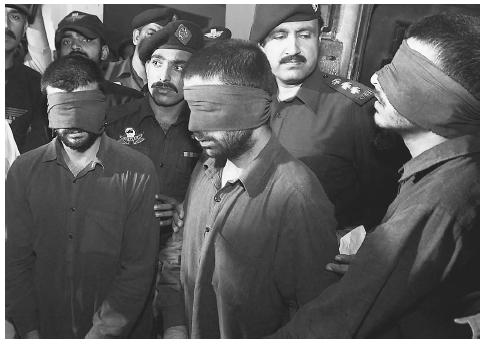India, Intelligence and Security
Espionage and intelligence appears in the recorded history of the Indus Valley as early as the fifth century. The modern nation of India gained its independence from Britain in 1947. The withdrawal of the British colonial government left India with little governmental infrastructure, and the nation embarked on an ambitious plan to create a new national government. Indian independence, however, also sparked resistance from ethnic groups on the Indian Subcontinent, such as the large Muslim community. As a result of the developing conflict, India quickly established military and intelligence forces.
India's intelligence community is divided into a traditional structure that separates military and civilian, and foreign and domestic intelligence. Though each agency is charged with its own mission, the government has provided a means to facilitate the sharing of information between members of the intelligence community. The Joint Intelligence Committee (JIC) processes and analyzes data gathered by both civilian and military intelligence agencies and coordinates joint operations. The National Security Council acts as liaison between the government's executive branch and the intelligence services, advising leadership on intelligence and security issues.
The main civilian intelligence agency in India is the Intelligence Bureau (IB). The IB focuses on domestic intelligence, but the exact structure and operations of the agency are largely unknown. Political espionage is illegal in India, and police gathered wiretapping information is inadmissible as evidence in court proceedings. However, the IB conducts regular electronic monitoring of telephone communications, and mail surveillance, despite occasional admonitions from Parliament. The Central Bureau of Investigations handles most criminal investigations, often acting on initial information provided by one of the IB's many departments. Increasing political tensions with neighboring Pakistan altered the focus of IB operations in recent years, with increasing attention paid to the protection and surveillance of national borders.
The Research and Analysis Wing (RAW) is India's primary agency responsible for foreign intelligence. RAW operations are largely focused on espionage against Pakistan. With the addition of both India and Pakistan to the growing cadre of the world's nuclear powers, India's RAW conducts counter-intelligence operations, as well as technological and remote espionage, against Pakistani defense and military interests. The RAW is not subject to Parliamentary review, and its actions are highly secret. The Indian government also used RAW resources to aid predominantly-Hindu Bangladesh's 1971 quest for independence from Muslim Pakistan. Most recently, the RAW aided international antiterrorism efforts by providing the United States and British governments information on the al-Qaeda terrorist network and its strongholds in Pakistan and Afghanistan.
Military intelligence is conducted by the Army Directorate of Military Intelligence. The agency is the weakest of India's intelligence community, but often aids civilian intelligence operations. The Army also maintains the Joint Cipher Bureau, the main code breaking department of Indian intelligence.

To the northwest, the independent Muslim nation of Pakistan claims the Kashmir region of India. The two nations have never resolved the border dispute, and tensions recently reached a climax when both nations declared themselves nuclear powers and began testing weapons of mass destruction. The nuclear programs of India and Pakistan raise interesting questions about the efficacy of current non-proliferation measures and the increasing global prevalence of industrial and scientific espionage. The increasing instability of the region has aroused the concern of the international community and the United Nations Security Council.
█ FURTHER READING:
PERIODICALS:
Ramana, M.V., et al. "India, Pakistan, and the Bomb." Scientific American. December 2001.
Comment about this article, ask questions, or add new information about this topic: